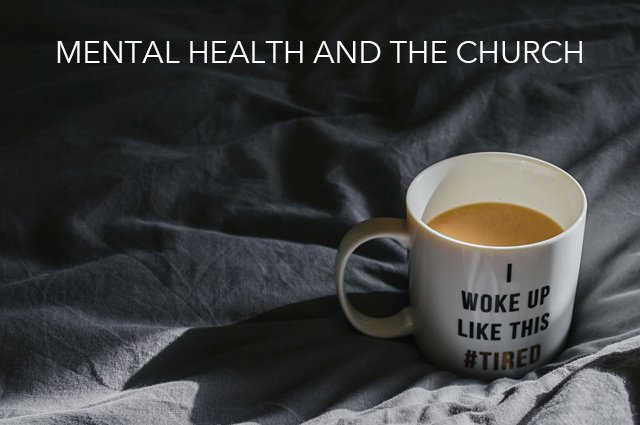Mental Health and the Church
Starting the discussion
I've been thinking a lot about mental health and how it's handled in the church, particularly in the charismatic/pentecostal churches in NZ.
If you're part of a charismatic /pentecostal church here in NZ how do you find this area of life is dealt with? Is this something we need to be looking at and handling better in our churches? Are people free to 'fess-up' and share that they have diagnosed mental health issues, trauma responses, PTSD, episodes of depression, are feeling suicidal, are seeing a counsellor, etc? Or is it just assumed that if you get prayed for on an altar call or in a prayer ministry session you will be all better from that moment on?
The last couple of years in particular have made the area of 'mental health' one that many more people are having to deal with facing issues in, because of the pressures the global pandemic has brought into people's lives. Are we facing them fair and square, or are we struggling to help people with their problems?
My story
My own personal story is – I have suffered chronic ongoing PTSD and major depressive episodes my whole life because of the severity of the childhood abuse I went through. I don't share about it a lot, but lately' I’ve felt that the time is right now for me to share my story more in the hope of raising more awareness of this issue in the church. Over the years I have had multiple prayer sessions, deliverance, been to counselors, and worked on my stuff continually, and I still am. I have received much healing and seen many areas of my life greatly improve through using these tools, yet despite all the healing I have received and the things I've learned that have helped, I still sometimes have battles with depression and trauma triggers and responses. The journey for me has been an ongoing progressive journey toward wholeness, not an instantaneous miracle fix.
Over the years leaders that I served under and alongside in the church have made statements like, "You don't need counseling, you just need to get into Jesus". It has been suggested to me, at times, that I should stand down from ministry because I wasn't a good example of an overcoming leader, and I have felt shamed by leaders and church members alike for having to take anti-depressants. It has been suggested multiple times that my mental health battles are demons that need casting out (that is quite a common belief, sadly). I have received prayer, and people have assumed that I would be healed from that moment, and have questioned my faith or sin status when I wasn't.
Sometimes it wasn't others who attached stigma and shame to my battles…it was me. I have looked down on myself, I have felt ashamed, I have even at times hated myself for being this way. I have assumed that if I shared with others how I was truly feeling at the time they would look down on me, so I stayed quiet. ... etc.
I suspect my story is not uncommon.
Yes, Christ heals and He does do miracles. I know that from personal experience. He is my healer and also my helper. Sometimes healing is instant, sometimes it is not. I have received instant healing for some health issues I've faced in life, but not for others.
Gifts of healing
Christ has given gifts (plural) of healing to people and He also leads them to train in certain ways – some as nurses, doctors, scientists, prayer counsellors, professional counsellors, physiotherapists, etc. So healing can come in many different ways – prayer, deliverance, professional counselling and yes, even medication. It is no shame to need help from medication; it is a tool designed for a specific job, just as a hammer is designed for its specific job.
Maybe part of our upskilling in dealing with this area in the church is recognising/discerning which tool is needed for a specific instance, and when. You may need several of the tools before the job is done and healing is manifested.
I'll be doing some other posts on this too, sharing some things I've found that have helped me, and some things that haven't, sharing some scriptural encouragement and more, so keep an eye open for those posts.
(Please don't email or message me asking me to counsel you. I am not a counselor and will instead encourage you to seek out someone who is. If you're making comments – Don't name churches or leaders please, this is not a 'bag and shame the church post'. If you have particular problems with how specific churches are dealing with this issue then talk to them about the issues; take someone else with you to talk to them if you are nervous.)
For the next article in this series click here.

